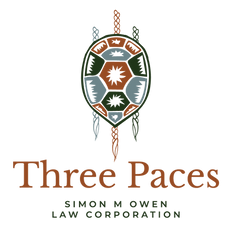Releasing Expertise: Approaching Legal Practice as a (non) Indigenous Lawyer
- organicfriend
- Jan 13, 2022
- 3 min read
Updated: Jan 14, 2022
I’ve recently returned to legal practice after six and a half with the Indigenous Law Research Unit at the University of Victoria, where much of my work supported legal revitalization projects with community partners. I spent countless (or at least unbillable) hours learning from Oral Traditions, stitching narrative knowledge into frameworks of law, and listening to people whose expertise, framed by long relations and land connections far more than any degree, breathed rich, reasoned, purpose-filled life into concepts that, though poorly translated and transcribed, I desperately hoped would help my legal world finally sense and accept the validity of theirs. I adopted words like resource-relation, kincentric, interdependent, and better ones such as mino-bimaadiziwin, amagyigyedm gitwaap, k’wséltkten, enowkinwixw, tr’ëhudè. I wove them into lengthy law reports that tried to set forth, if not convincingly establish, the richness, nuance, and profound usefulness of Indigenous legal principles, processes, and institutions. The message, at base, was always that Indigenous law is not just culture or custom, and certainly not a dead/frozen/utopian tradition, but rather (like all law) a living, social expression of shared meaning, legitimacy, and public tools to solve common problems. And more so – unlike the deracinated, often predatory imported systems upon which colonial authority is founded, Indigenous legal orders are just that – grounded, rooted, connected with and within the many places, beings, inter-species relations which they uphold, and to whom they are fundamentally responsible.
It was a gift of an opportunity, and I am incredibly grateful for the knowledge, awareness, and inspiration that my time at ILRU provided. I have so many hopes and questions about how to take on and take care of these teachings. In lawyer-speak, how might Indigenous laws be meaningfully upheld in the Aboriginal legal practice to which I’ve returned?
This is essentially what I want to explore in my work and in this blog. But first. For all I’ve learned over these years of dedicated research into many legal traditions and areas of law, I have grown most fundamentally aware of a few things that serve to restrain and inform these eager forays (with thanks to Val Napoleon, Hadley Friedland, Jess Asch, John Borrows and many others):
- Indigenous legal orders, like the people, relationships, and societies that compose and uphold them, are diverse, dynamic and indeterminate. They cannot be ‘known’ as subjects of objective study.
- As human tools and techniques for making sense of and solving human problems, Indigenous laws can (and must) be understandable and appliable, both by those to whom they belong (citizens of specific societies) and those whom they bind or involve (these citizenries AND all those who live, work, or otherwise engage with the spaces and relationships a given citizenry governs).
- Collectively speaking, we are not (and never have been) made up of whole, pure, uncompromised or unintelligible legal orders. As long as there have been multiple societies living in these territories (which is far longer than there has been a Canada to attempt to rank or ‘reconcile’ them), we have been authorities-in-relationship; in other words, legal pluralists.
This is not to suggest that differences don’t matter. Indeed, equitably re-ordered, these will be the strengths that build and rebuild strong, resilient, just ways of governing our diverse relations as well as our common concerns. This includes, most especially, taking care of the creation that gifts us life. Canadian lawyers, and anyone beguiled by the seemingly total occupation of Canadian law – in both authority and substance – can no longer afford to prop up such a damaging, destabilizing myth. This is my part of trying.

Comments